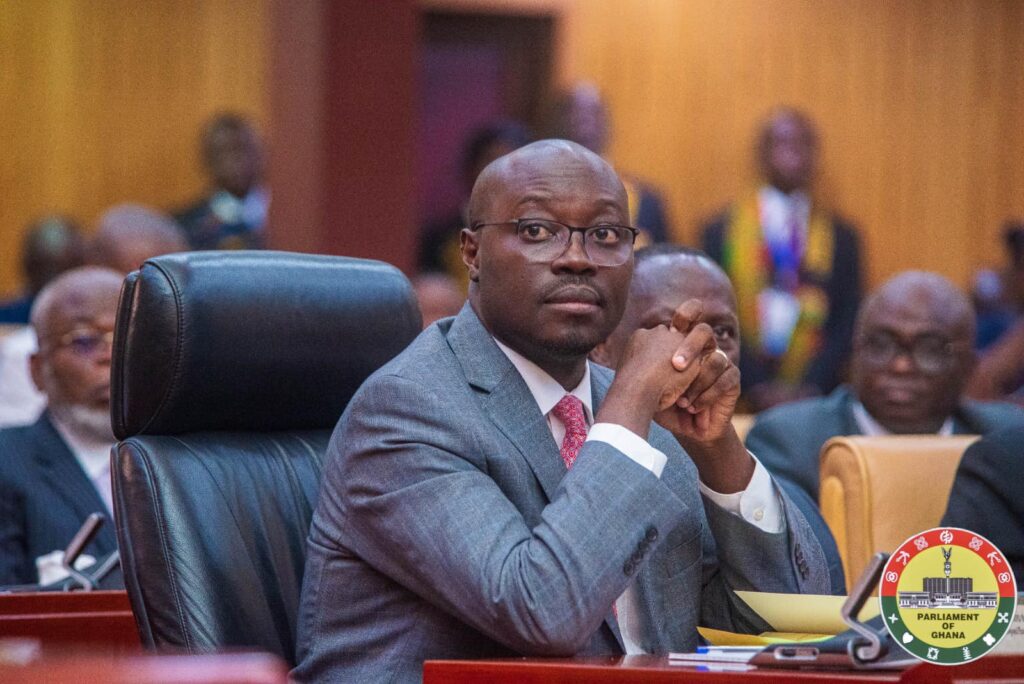Ato Forson, Finance Minister-Designate, outlines plans to abolish the E-Levy within 120 day

Dr. Cassiel Ato Forson, Ghana’s Finance Minister-designate, has reiterated his firm commitment to abolishing the Electronic Transaction Levy (E-Levy) within the first 120 days of President John Dramani Mahama’s administration. His statements came during his vetting before the Appointments Committee of Parliament on Monday, January 13, 2025, where he laid out his opposition to the levy and its detrimental effects on the country’s economy.
Dr. Forson made it clear that his stance on the E-Levy remains unchanged, expressing his long-standing opposition to the policy. “My position on the E-Levy is well known, and I do not intend to back down. I have written articles against it and led the charge in opposing it. I stand by my previous views,” he affirmed. The Finance Minister-designate went on to criticize the structure of the E-Levy, stating that, as a tax practitioner, he struggles to categorize the levy properly. “The E-Levy is neither a direct tax, nor an indirect tax, nor an excise tax. As a tax expert, I find it difficult to classify it within the typical tax structures,” he remarked.
While Dr. Forson acknowledged that the E-Levy generates revenue for the government, he argued that it has significant negative consequences for the country’s financial technology (fintech) sector and its transition toward a cash-light economy. “The reality is that the E-Levy impedes our progress toward a cash-light economy and the development of fintech. It is a barrier that needs to be removed,” he emphasized. His statements underscore his belief that the levy hinders technological advancement and financial innovation in Ghana.
Dr. Forson then reinforced his earlier pledge to abolish the E-Levy, reassuring Ghanaians that its removal would be a top priority under his leadership. “If given the opportunity, I will honor my commitment to abolish the E-Levy as part of the first budget. As promised in the 120-day agenda by President Mahama, we will eliminate the E-Levy, and I assure you that it will be gone within the first 120 days,” he declared.
In addition to his stance on the E-Levy, Dr. Forson touched on the broader issue of fiscal policy, particularly the need to focus on expenditure management rather than continuously increasing revenue. He questioned the emphasis on revenue generation, stating, “It shouldn’t always be about revenue, revenue, revenue. Why are we not focusing on managing expenditure?” He suggested that the country should shift its focus towards controlling and optimizing government spending, which he believes would improve the overall fiscal situation.
Dr. Forson outlined his approach to fiscal consolidation, proposing a strategy that would prioritize managing expenditure in a sustainable manner. “We will adopt a strong but prudent expenditure-based fiscal consolidation agenda, front-loaded to ensure that it does not hinder growth or harm vulnerable groups. The cuts in expenditure will be carefully targeted, and we will ensure that the vulnerable members of society are protected,” he explained. This approach reflects his belief that managing spending effectively is crucial for economic stability without sacrificing the welfare of the most disadvantaged.
The Finance Minister-designate also emphasized the importance of eliminating wasteful government spending. He stressed that inefficient expenditure practices should be re-evaluated to ensure resources are used in ways that benefit the country’s development. “If government spending is wasteful or misdirected and does not achieve the desired outcomes, it needs to be reconsidered. We need to make sure every expenditure contributes to inclusive growth,” he said.
Dr. Forson also assured the Committee that his policies would prioritize the welfare of vulnerable groups, a core value of his political ideology as a social democrat. “I am a social democrat, and my party, the NDC, is built on these ideals. We will not implement policies that harm the vulnerable. Our primary goal will be to protect and uplift those who are most in need,” he affirmed.
With over 20 years of experience monitoring Ghana’s economy, Dr. Forson expressed confidence in his ability to implement effective policies for the country’s economic growth. “I have closely observed Ghana’s economy for nearly two decades and understand its trends and dynamics. Any policy we introduce will be designed to foster inclusive growth that benefits all Ghanaians,” he concluded.
In summary, Dr. Forson’s statements during his vetting highlighted his strong commitment to abolishing the E-Levy, his focus on effective expenditure management, and his dedication to social protection for vulnerable groups. He reaffirmed his pledge to prioritize sustainable economic policies that ensure growth while protecting the most disadvantaged members of society.







